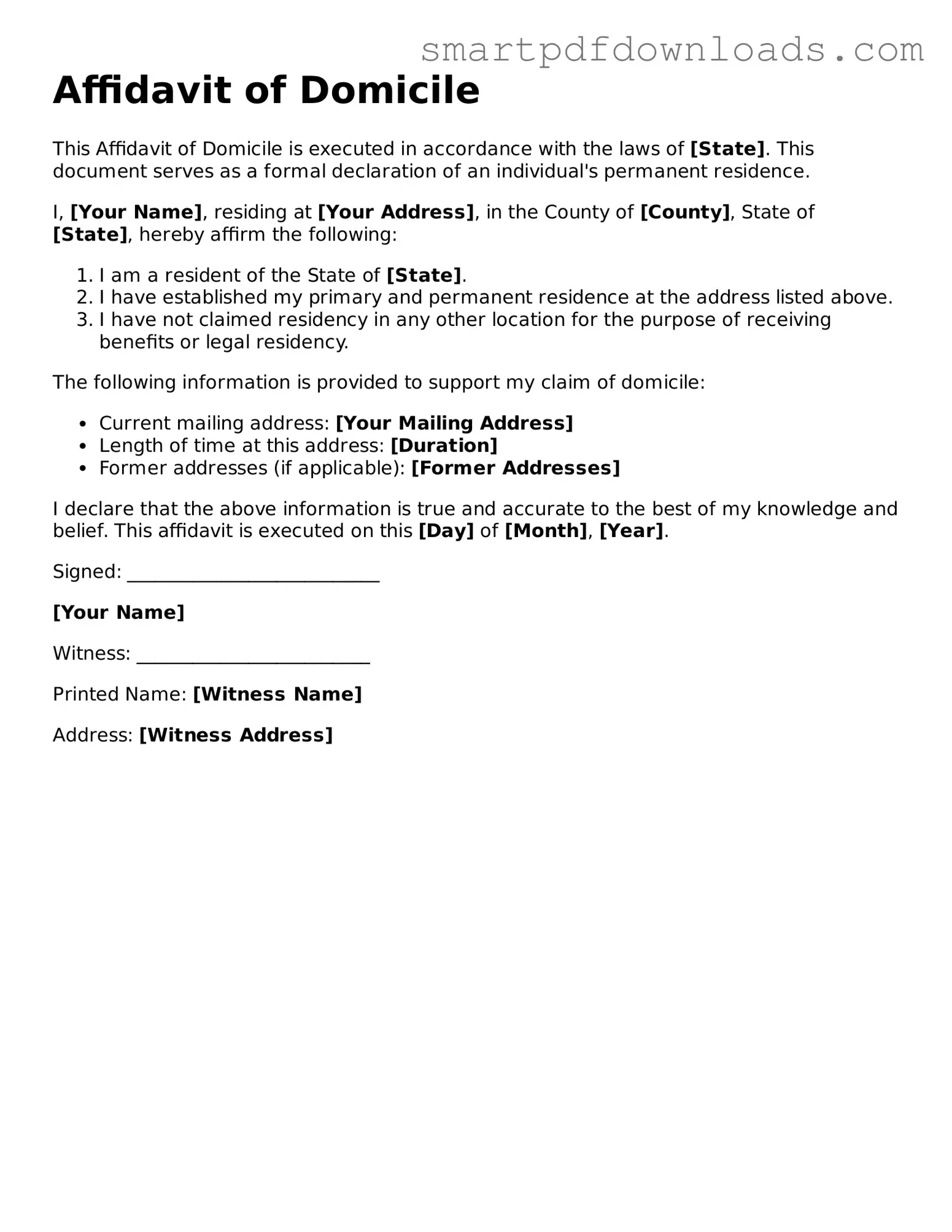Free Affidavit of Domicile Form
An Affidavit of Domicile is a legal document that confirms an individual's permanent residence, often used in matters related to estate planning and the distribution of assets. This form serves to establish where a person considers their home, which can be crucial for tax purposes and legal jurisdictions. Understanding its importance can help individuals navigate various legal processes more effectively.
Edit Affidavit of Domicile Online

Free Affidavit of Domicile Form
Edit Affidavit of Domicile Online

Edit Affidavit of Domicile Online
or
⇓ PDF File
Finish the form and move on
Edit Affidavit of Domicile online fast, without printing.